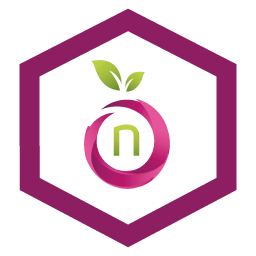7 Minimum Viable Product Examples to Inspire You in 2026
Launching a new product often feels like a high-stakes gamble, but it doesn’t have to be. The Minimum Viable Product (MVP) approach de-risks innovation by focusing on a core hypothesis: building the simplest version of a product to test market viability with real users. This strategy saves invaluable time, resources, and capital by prioritizing validated learning over feature-rich speculation. By starting small and iterating based on direct customer feedback, founders can ensure they are building something people actually want and will pay for.
This article moves beyond theory to provide a strategic breakdown of real-world minimum viable product examples. We will analyze how iconic companies and platforms like Amazon, Coursera, and Product Hunt began with highly focused, rudimentary offerings to solve a specific customer problem. You will discover the specific tactics they used, the core assumptions they tested, and the key lessons their initial launches provide.
Each example includes a detailed analysis of their MVP strategy, actionable takeaways, and replicable methods that you can apply to your own venture. Whether you’re a startup founder, product manager, or corporate innovator, this guide will equip you with the insights needed to launch a successful MVP and build a sustainable business.

1. Amazon
While Amazon itself has long since graduated from its MVP status as an online bookstore, it remains the definitive starting point for anyone serious about mastering the MVP concept. It provides unparalleled access to the foundational literature that defined the entire lean startup movement, including seminal works like Eric Ries’s The Lean Startup. For founders, product managers, and entrepreneurs, Amazon is less a direct example and more the essential library for studying the theory behind hundreds of successful minimum viable product examples.
The platform excels by removing nearly all friction between a founder’s decision to learn and the act of acquiring knowledge. With options for print, Kindle (instant delivery), and Audible formats, it caters to every learning style. The vast user-generated review system also acts as a powerful filter, helping you distinguish timeless strategic guides from fleeting, tactical advice.
Strategic Breakdown & Key Features
Amazon’s value is not just in its catalog but in the ecosystem built around it. For those studying MVP development, this translates to several key advantages.
- Unmatched Selection: Access the most comprehensive collection of books on lean methodology, from foundational texts to niche case studies.
- Multi-Format Access: Choose between physical copies for your office library, Kindle versions for immediate reading, or Audible for learning on the go.
- User-Driven Curation: Leverage thousands of reader reviews and ratings to vet a book’s quality and relevance before purchasing.
- Frictionless Acquisition: For U.S. customers, Prime shipping offers fast, reliable delivery, while Kindle’s “Buy now with 1-Click” is the epitome of instant access.
Platform Analysis
| Feature | Analysis |
|---|---|
| Pricing & Access | Prices are dynamic but competitive. Offers new, used, and digital options to fit various budgets. |
| User Experience | Highly optimized for search and discovery, making it easy to find specific titles or related works. |
| Key Differentiator | Serves as the canonical, one-stop shop for the definitive literature that shapes MVP strategy worldwide. |
Website: https://www.amazon.com/Lean-Startup-Entrepreneurs-Continuous-Innovation/dp/0307887898
2. Strategyzer
Where Amazon provides the foundational theory, Strategyzer offers the applied science. This platform moves beyond abstract concepts and into the trenches of MVP execution, providing a structured, experiment-driven toolkit for founders. It is an essential resource for teams looking to systematically de-risk their business ideas by learning from tangible, real-world minimum viable product examples and applying proven testing patterns.
Strategyzer’s core value lies in its direct integration with the Business Model and Value Proposition Canvases, turning them from static documents into dynamic testing dashboards. It provides a library of experiment types, complete with case studies from companies like Dropbox and Airbnb, allowing you to choose the right test for your specific hypothesis. This practical approach helps bridge the gap between a great idea and a validated business model.
Strategic Breakdown & Key Features
Strategyzer excels by providing a clear, visual methodology for validating business assumptions. Its focus on practical application makes it an indispensable tool for teams committed to evidence-based entrepreneurship.
- Experiment Library: Access a curated collection of over 43 distinct experiment types, categorized by Desirability, Viability, and Feasibility, to test any part of your business model.
- Case-Based Learning: Study detailed MVP breakdowns from well-known startups, learning how they designed and executed their initial tests.
- Structured Video Courses: Engage with self-paced, author-led courses that provide deep dives into testing business ideas and designing value propositions.
- Canvas Integration: Tightly connects testing activities with the Business Model and Value Proposition Canvases, ensuring your experiments are always strategically aligned.
Platform Analysis
| Feature | Analysis |
|---|---|
| Pricing & Access | Courses are a premium investment compared to standard MOOCs, but a money-back guarantee is offered. Some free tools and resources are available. |
| User Experience | Highly visual and structured. The platform is designed for practical application, though it helps to be familiar with the Business Model Canvas beforehand. |
| Key Differentiator | Its unique focus on a repeatable, pattern-based library of experiments transforms MVP design from an art into a systematic process. Learn more about how these frameworks inform your market position by exploring competitive analysis frameworks. |
Website: https://www.strategyzer.com
3. Coursera
While Amazon provides the foundational texts, Coursera offers the structured, hands-on application of MVP principles. It bridges the gap between theory and practice by offering university-backed courses that guide learners through defining, building, and testing their own MVPs. For founders who prefer a guided curriculum, Coursera presents a cost-effective alternative to private bootcamps, with courses often using contemporary minimum viable product examples as case studies.
The platform’s strength lies in its academic rigor combined with practical, project-based learning. Instead of just reading about lean methodologies, users complete graded assignments that simulate the real-world process of developing a product from concept to an initial market test. This approach helps solidify understanding and build a tangible portfolio of skills.
Strategic Breakdown & Key Features
Coursera’s value proposition is its ability to deliver structured, expert-led education on a flexible, global scale. For entrepreneurs looking to master the MVP process, this translates into several distinct advantages.
- University-Authored Syllabi: Learn from curricula developed by reputable institutions, with many courses featuring graded projects focused on building and testing an MVP.
- Flexible Learning & Certification: Progress at your own pace and earn shareable certificates upon completion to validate your skills to investors, partners, or employers.
- Specialized MVP Pathways: Access a wide range of specialized courses and certificate programs covering everything from initial hypothesis testing to achieving product-market fit.
- Affordable Access: Gain entry to high-quality academic content at a fraction of the cost of traditional education, especially with the value offered by a Coursera Plus subscription.
Platform Analysis
| Feature | Analysis |
|---|---|
| Pricing & Access | Offers individual course purchases, specializations, and the Coursera Plus subscription for unlimited access. Financial aid is available. |
| User Experience | The platform is intuitive, with clear learning paths, progress tracking, and a mix of video lectures, readings, and hands-on projects. |
| Key Differentiator | Provides a structured, academically-backed learning environment for mastering MVP development with practical, graded assignments. |
Website: https://www.coursera.org
4. Udemy
Where theory meets practice, Udemy serves as a vast, on-demand video classroom for founders seeking tactical, hands-on guidance. While books provide the strategic “why,” Udemy excels at delivering the practical “how.” Its marketplace model ensures a constant stream of courses covering every facet of MVP creation, from building no-code landing pages and running concierge tests to validating payment flows before writing a single line of code. This makes it an invaluable resource for non-technical founders looking to transform an idea into one of the next great minimum viable product examples.
The platform’s core strength lies in its accessibility and action-oriented content. Instructors often use real-world case studies and provide step-by-step walkthroughs of specific tools and techniques. This direct, application-focused approach empowers entrepreneurs to immediately test hypotheses and gather crucial market feedback without a significant upfront investment in time or money, which is the essence of the MVP philosophy.
Strategic Breakdown & Key Features
Udemy’s value proposition is its direct, skill-based training that demystifies the technical aspects of launching an MVP for a broader audience.
- Actionable MVP Courses: A massive catalog of courses specifically focused on building, testing, and iterating on MVPs.
- No-Code Tool Demonstrations: Many courses provide detailed tutorials for popular no-code platforms, enabling founders to build functional prototypes themselves.
- Real-World Examples: Instructors frequently break down actual MVP examples, including landing page tests, smoke tests, and concierge MVPs.
- Lifetime Access: Purchase a course once and retain access to it forever, including any future updates made by the instructor.
Platform Analysis
| Feature | Analysis |
|---|---|
| Pricing & Access | Extremely affordable, with frequent and deep sales reducing course prices significantly. Lifetime access is a key benefit. |
| User Experience | The platform is easy to navigate, with user ratings and reviews helping to identify high-quality courses. |
| Key Differentiator | Offers practical, “over-the-shoulder” video training that is highly accessible for non-technical founders seeking to build their first MVP. |
Website: https://www.udemy.com/topic/minimum-viable-product/
5. Harvard Business Review (HBR Store)
For founders needing to justify a lean approach to skeptical stakeholders or boards, the Harvard Business Review (HBR) Store provides the intellectual ammunition. It moves beyond theory and offers detailed, classroom-tested case studies on companies that employed hypothesis-driven development and lean experimentation. These narratives are powerful tools for illustrating the practical application and success of principles behind many minimum viable product examples.
The platform’s core value is its credibility. An HBR case study serves as a vetted, authoritative account of a business challenge and its resolution, making it an invaluable resource for gaining buy-in for an MVP strategy. Instead of just pitching an idea, you can present a concrete example of a similar company that validated its market through small, iterative experiments, backed by the HBR brand.
Strategic Breakdown & Key Features
The HBR Store equips entrepreneurs with high-quality, narrative-driven evidence to support their MVP-centric product development strategies. This is particularly useful in corporate environments where established processes may resist lean methodologies.
- Credible Case Studies: Access hundreds of downloadable PDF case studies detailing real-world business scenarios involving lean models and experimentation.
- Stakeholder-Ready Narratives: Use concrete, compelling stories from recognized companies to illustrate MVP principles and persuade decision-makers.
- Wide Industry Coverage: Find relevant examples from various sectors, allowing you to tailor your argument to your specific market context.
- Immediate Access: Purchase and download cases instantly, enabling you to find supporting evidence for a critical meeting on short notice.
Platform Analysis
| Feature | Analysis |
|---|---|
| Pricing & Access | Cases are sold individually, typically under $10 each. This pay-per-case model can become costly for extensive research. |
| User Experience | The store is straightforward, with a clean interface optimized for searching and browsing specific business topics or companies. |
| Key Differentiator | Offers authoritative, narrative-based evidence that is ideal for teaching MVP concepts and securing stakeholder buy-in. |
Website: https://store.hbr.org/case-studies/
6. Product Hunt
Product Hunt is less a single case study and more a living, breathing museum of minimum viable product examples, launching daily. It is an essential resource for anyone looking to understand the modern MVP landscape, offering a real-time feed of what new products are entering the market, how they are positioned, and the initial user feedback they receive. For founders and product teams, it provides an invaluable daily dose of inspiration and competitive analysis.
The platform’s core value is its community-driven curation and the direct access it provides to the makers behind the products. This transparency allows you to go beyond the landing page and engage with founders in discussions, ask about their MVP strategy, and learn from their launch-day experiences. It transforms the abstract concept of an MVP into a tangible, daily event.
Strategic Breakdown & Key Features
Product Hunt serves as a dynamic research and learning tool for validating ideas and observing launch strategies in the wild. Its utility for MVP builders is multifaceted.
- Daily MVP Showcase: Discover new SaaS, AI, and consumer apps every day, many of which are launching publicly for the first time as MVPs.
- Direct Maker Access: Engage directly with founders in the comments to ask about their development process, validation techniques, and tech stack.
- Community-Driven Validation: Observe real-time user feedback, feature requests, and market reception, providing raw insights into product-market fit.
- MVP Resource Discovery: The platform also features collections and posts about no-code tools, development agencies, and marketplaces specializing in building and selling MVPs.
Platform Analysis
| Feature | Analysis |
|---|---|
| Pricing & Access | Free to browse, comment, and upvote. Creating a profile is optional but recommended for saving products and following makers. |
| User Experience | Clean, intuitive interface focused on daily discovery. The comment and discussion threads are well-organized and easy to follow. |
| Key Differentiator | Functions as a live, continuous stream of real-world MVPs, offering an unparalleled opportunity for daily market and trend analysis. |
Website: https://www.producthunt.com
7. LEANSTACK / LEANFoundry
Where Amazon provides the theoretical library for MVPs, LEANSTACK offers the practical, hands-on workshop. Founded by Ash Maurya, author of Running Lean, this platform is purpose-built to guide entrepreneurs through the entire MVP lifecycle, from initial idea to validated learning. It transforms abstract concepts into a structured, repeatable process, making it an indispensable tool for founders focused on evidence-based product development and one of the most actionable minimum viable product examples available.
The platform’s core strength lies in its suite of focused tools, like the Lean Canvas, which helps deconstruct a business model into its core assumptions. It then provides playbooks and challenges designed to systematically test these hypotheses with real customers. This structured approach prevents founders from building products based on unverified beliefs, focusing their limited resources on what truly matters: achieving product-market fit.
Strategic Breakdown & Key Features
LEANSTACK’s value is in its structured, tool-based methodology. For founders, this means moving beyond theory and into systematic, evidence-driven experimentation.
- Lean Canvas Tool: A one-page business model canvas designed to quickly outline and stress-test your core assumptions about a problem, solution, and customer segment.
- Structured Playbooks: Step-by-step guides and 30-day challenges that walk you through specific experiments, from conducting problem interviews to building a smoke-test landing page.
- Traction Modeling: The Traction Roadmap and Customer Forces tools help you visualize and prioritize the path toward acquiring your first ten, then one hundred, paying customers.
- Expert Coaching & Workshops: Access to guidance from Ash Maurya and other certified coaches provides invaluable feedback, a key differentiator from self-guided learning.
Platform Analysis
| Feature | Analysis |
|---|---|
| Pricing & Access | Operates on a premium membership model. While pricier than a MOOC, it offers direct access to tools and coaching. |
| User Experience | The interface is focused and utilitarian, prioritizing the canvas and playbook functionality over aesthetics. |
| Key Differentiator | It’s a comprehensive “MVP operating system” that combines tools, methodology, and coaching in a single ecosystem. It is an excellent resource for anyone looking for the right naming tools for brands. |
Website: https://www.leanstack.com
7 Examples of Minimum Viable Product Strategies
| Platform | Implementation Complexity ? | Resource Requirements ⚡ | Expected Outcomes ? | Ideal Use Cases ? | Key Advantages ⭐ |
|---|---|---|---|---|---|
| Amazon | Low – simple book purchase | Minimal – purchase cost and device | Foundational MVP knowledge, theoretical base | Quick access to canonical MVP literature | Vast catalog; instant Kindle delivery |
| Strategyzer | Medium – requires some prior knowledge | Moderate – paid courses and tools | Practical MVP experiment design and validation | Experiment-driven MVP learning; startups and educators | Visual, hands-on tools; real startup cases |
| Coursera | Medium – structured university courses | Moderate – subscription or payment | Comprehensive MVP to product-market fit path | Academic learning with projects; self-paced formal training | University-backed content; graded projects |
| Udemy | Low to Medium – varied course quality | Low – affordable with frequent sales | Practical MVP skills for non-technical founders | Affordable, flexible MVP how-to training | Large course variety; lifetime access |
| HBR Store | Low – straightforward case downloads | Low to Medium – pay-per-case | Business narrative insights and stakeholder buy-in | In-depth business cases for executives and educators | High-quality, credible case studies |
| Product Hunt | Low – browsing and community interaction | Minimal – free platform | Exposure to live MVP launches and user feedback | Real-time MVP product scans; market and community insights | Free access; real MVP examples and trends |
| LEANSTACK / LEANFoundry | Medium to High – active engagement in tools | Higher – membership, courses, workshops | Evidence-based MVP experiment tracking and traction | Structured MVP validation programs; startup accelerators | Purpose-built MVP tools; coaching & collaborations |
Final Thoughts
As we’ve explored through these detailed minimum viable product examples, from the humble beginnings of Amazon’s online bookstore to the focused value proposition of Product Hunt, a clear pattern emerges. A successful MVP isn’t about building a stripped-down, feature-poor version of a grand vision. Instead, it is a highly strategic instrument designed for one primary purpose: to learn.
Each example, whether it was Coursera’s early video lectures or LEANSTACK’s focused problem-solving tools, prioritized validating a core assumption with the least amount of effort. They resisted the urge to build everything and instead focused on delivering a single, compelling piece of value to a specific audience. This approach allowed them to gather real-world data, pivot based on user feedback, and systematically de-risk their business models before committing significant resources.
Key Principles from These MVP Examples
The common thread weaving through these case studies isn’t a specific technology or industry, but a shared mindset. Founders and teams who succeed with the MVP approach embrace experimentation, value customer feedback over internal speculation, and understand that the initial product is just the first step on a much longer journey.
- Focus on the “One Thing”: Identify the single most critical problem you are solving and build your MVP exclusively around that. HBR’s initial store focused solely on selling articles, not a complex digital media empire.
- Manual Can Be Mighty: As seen with early e-commerce and platform examples, manual or “Wizard of Oz” processes behind the scenes can effectively validate a concept without heavy engineering investment.
- Value Proposition is Paramount: Your MVP must clearly communicate and deliver a unique value proposition. Strategyzer’s initial tools did one thing exceptionally well: helping users visualize and test business models.
Your Next Steps: Building Your Own MVP
Armed with insights from these powerful minimum viable product examples, it’s time to translate inspiration into action. Begin by clearly defining the core hypothesis you need to test. What is the most significant assumption your entire business idea rests upon? Once identified, brainstorm the absolute simplest experiment you can run to get a clear yes or no answer from your target market.
Consider the tools and platforms at your disposal. Could a simple landing page, a survey, or a prototype built with a no-code tool achieve your learning goals? The objective is not to build a scalable product at this stage, but to build a learning machine. Measure engagement, gather qualitative feedback, and be prepared to adapt. The most valuable outcome of an MVP is not revenue, but validated learning that illuminates the path forward. Embrace the process, stay lean, and build what customers truly want.
Before you build your MVP, you need a name that resonates with your target audience and clearly communicates your value. The naming process itself can be an MVP test. Start your journey with a powerful, memorable brand identity using the smart tools from NameRobot. Find the perfect name for your next big idea at NameRobot.















